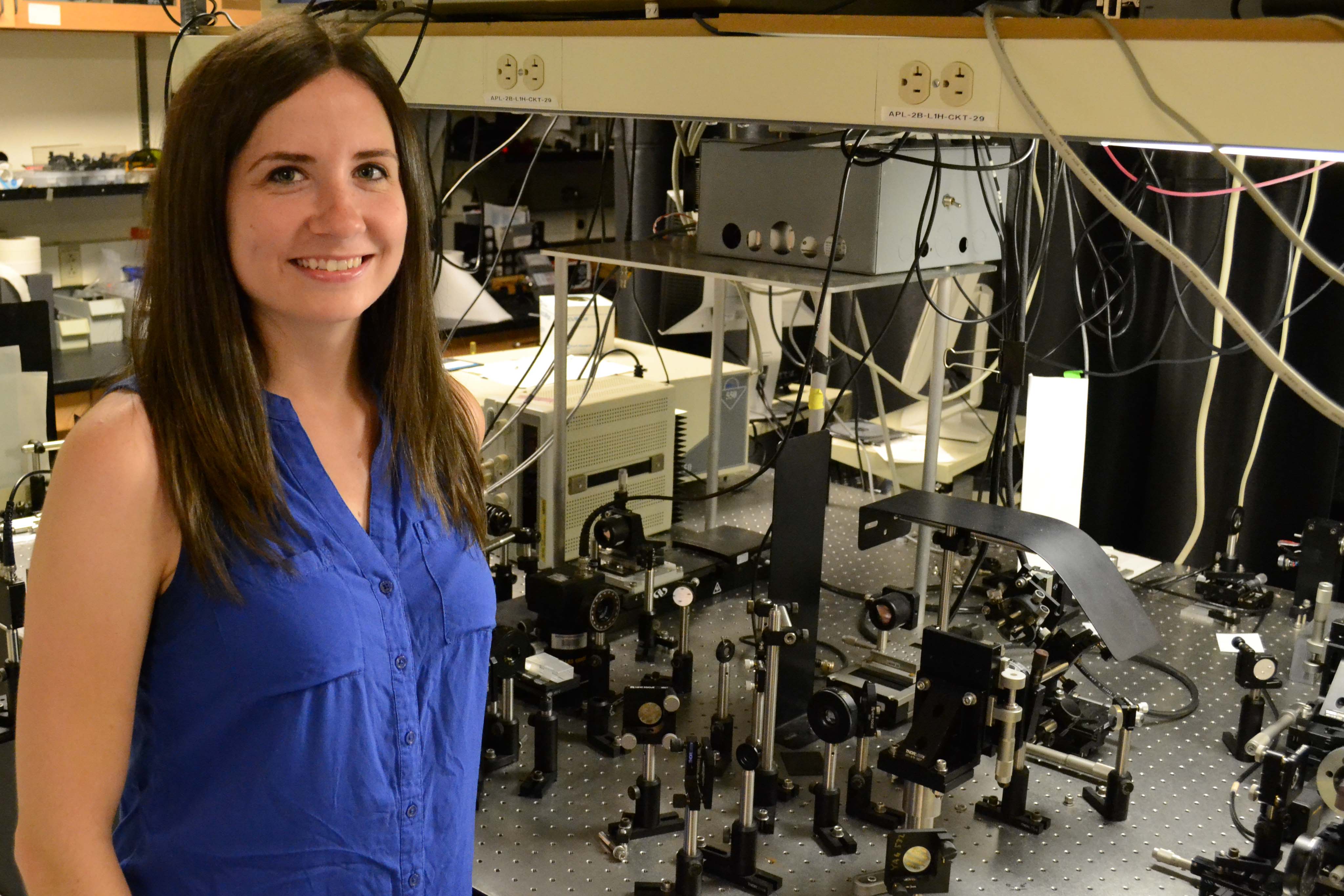Bridget Salna, Physics PhD candidate, sits down with the College of Science Graduate Program staff to talk about what it’s like to work and study at Northeastern University.
What are you researching?
Proton transfer reactions are ubiquitous in biological systems and are involved in many processes critical to sustaining life, from cell energy storage to photosynthesis. By studying the light-triggered proton transfer reaction in the green fluorescent protein, we found that these reactions are governed by quantum, rather than classical, mechanics, by a phenomenon called quantum tunneling. This surprising result may help us to better understand how proton transfer wires work in proteins and may enable better control over these processes for use in applications.
What is your favorite part about Northeastern?
One of my favorite aspects is the collaborative environment that exists at Northeastern, both within and between the different fields of physics. The biophysics group is very supportive of one another and I really appreciate that I have so many opportunities to receive advice from my peers and professors.
Why did you choose Northeastern?
I chose Northeastern because of the broad range of research opportunities which were available. I was also drawn in by the impressive research being done by the biophysics groups, a field which I was interested in pursuing.
What is your favorite part of Boston?
My favorite place to take a walk is along the bay in South Boston, out to the JFK Presidential Library. There’s a great view of the city from there. But in general I think my favorite area is the North End because of the unique atmosphere and delicious food!
What advice would you give to an incoming graduate student?
Getting a PhD in a scientific field will test both your knowledge and your determination. Though you will encounter difficulties and failures, every so often you will succeed and the process will feel worthwhile. From personal experience, we dedicated several years to the green fluorescent protein project that we knew was important to get right, and to finally see my work published in Nature Chemistry was extremely rewarding.

